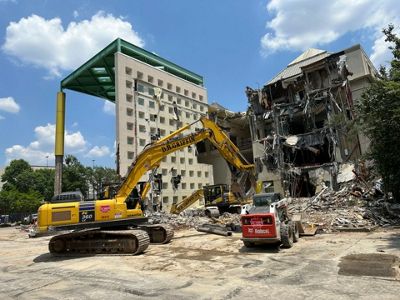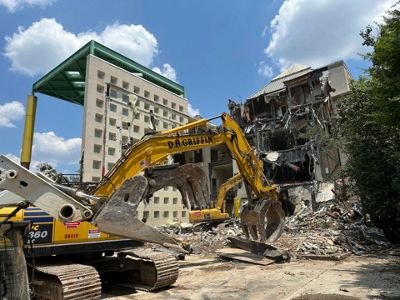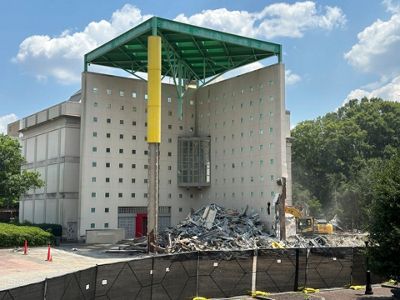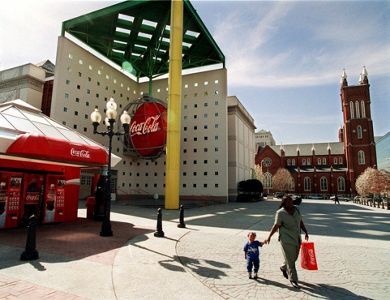ATLANTA (AP) — Once a shrine to the world's most popular soft drink, the building that housed the original World of Coca-Cola is going flat at the hands of Georgia's state government.
Crews continued Friday to demolish the onetime temple of fizz in downtown Atlanta near the state capitol, with plans to convert the site to a parking lot.
Visitors since 2007 have taken their pause that refreshes across downtown at a newer, larger Coca-Cola Co. museum in Atlanta's Centennial Olympic Park. The building is testament to the marketing mojo of the Atlanta-based beverage titan, getting visitors to pay to view the company's take on its history and sample its drinks.
The park has become the heart of the city's tourism industry, ringed by hotels and attractions including the Georgia Aquarium, the College Football Hall of Fame, the National Center for Civil and Human Rights, State Farm Arena and the Georgia World Congress Center convention hall.
State government bought the original three-story museum, which opened in 1990, from Coca-Cola in 2005 for $1 million, said Gerald Pilgrim, deputy executive director of the Georgia Building Authority. The agency maintains and manages state properties.
Once Atlanta's most visited indoor attraction, the building has been vacant since Coca-Cola moved out in 2007, Pilgrim said. He said state officials decided to demolish it because some of the existing surface parking for the Georgia Capitol complex is going to be taken up by a construction staging area to build a new legislative office building. The demolition would create new parking adjoining a former railroad freight depot that is a state-owned event space.
“With limited space around Capitol Hill, there was a need to replace the public parking that was being lost due to the neighboring construction project," Pilgrim wrote in an email Friday.
Lawmakers agreed this year, with little dissent, to spend $392 million to build a new eight-story legislative office building for themselves and to renovate the 1889 Capitol building. That project is supposed to begin soon and be complete by the end of 2026.
Pilgrim said the demolition will cost just under $1.3 million and is projected to be complete by Aug. 1.
Copyright 2024 The Associated Press. All rights reserved. This material may not be published, broadcast, rewritten or redistributed without permission.







